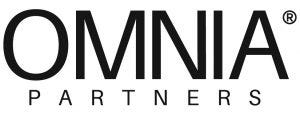
Omnia Partners
Improving Indoor Air Quality Through Effective HVAC VentilationImproving Indoor Air Quality Through Effective HVAC Ventilation
Indoor air quality (IAQ) is influenced by a variety of factors, including outdoor pollutants, ventilation systems, and the presence of indoor sources like cleaning chemicals, allergens, and building materials. Poor IAQ can directly impact the health and productivity of individuals within a building. For instance, exposure to airborne particulate matter, such as that found in wildfire smoke, can lead to respiratory issues, especially for vulnerable populations such as children, the elderly, and those with pre-existing health conditions.
February 24, 2025

Similarly, viruses like COVID-19 can be transmitted through respiratory droplets in poorly ventilated spaces. Beyond natural sources like wildfire smoke, research has shown that common indoor pollutants—like chemicals from household items—can also contribute to degraded air quality, making indoor environments potentially more harmful than outdoor air in some cases. These findings emphasize the need for effective ventilation systems and air purification solutions to mitigate health risks, particularly in environments with fluctuating outdoor air quality.[ED1]
Addressing these factors through comprehensive IAQ strategies is crucial for maintaining safe, healthy, and productive indoor spaces
As air pollution increases—whether due to wildfires, urban smog, or other environmental factors—ensuring a clean and safe indoor environment becomes more challenging. In addition, many modern HVAC systems may struggle to filter out fine particulate matter and pathogens effectively, which leaves facilities at risk of poor air quality despite efforts to increase ventilation.
The Role of HVAC Systems in Ventilation
HVAC systems are central to maintaining indoor air quality by providing ventilation and regulating temperature. Ventilation is crucial for diluting indoor air pollutants, removing excess moisture, and ensuring a supply of fresh air. However, when outdoor air quality is compromised traditional ventilation systems that pull in fresh outdoor air can inadvertently introduce harmful particles into the indoor environment. The solution lies in optimizing HVAC systems with advanced filtration and purification technologies that can address both outdoor contaminants and indoor pollutants.
Key Considerations for Improving IAQ with HVAC Systems
Filtration Technology: One of the most effective ways to improve IAQ is by using high-efficiency filters, such as HEPA filters, which can capture smaller particles, including dust, smoke, and pathogens. These filters are essential for trapping particles that traditional filters may miss.
Air Purifiers: In addition to HVAC systems, standalone air purifiers can be strategically placed throughout a facility to target specific areas with high foot traffic, such as offices, classrooms, and meeting rooms. Air purifiers equipped with advanced filtration systems can remove contaminants from the air and reduce the risk of exposure.
Monitoring Air Quality: Real-time monitoring of IAQ allows building managers to track pollutant levels, humidity, and other factors that impact air quality. These systems can alert facility managers to air quality changes, enabling them to take action before levels reach unsafe thresholds.
Ventilation Optimization: During periods of poor outdoor air quality, HVAC systems should be adjusted to recirculate air and increase filtration, while minimizing the intake of outdoor air. This strategy helps ensure that indoor air remains clean without introducing harmful pollutants.
Creating a Resilient IAQ System
A proactive approach to IAQ management involves creating an adaptable and resilient system that can handle fluctuations in outdoor air quality while maintaining healthy indoor environments. By integrating advanced filtration, air purifiers, and real-time air quality monitoring, organizations can safeguard the health and well-being of their occupants, regardless of external environmental conditions.
Leveraging Cooperative Purchasing for Better Air Quality Solutions
OMNIA Partners[ED2] supports organizations in improving indoor air quality through cooperative purchasing. By leveraging collective buying power, our network makes it easier for government agencies to access high-quality HVAC systems, air filtration solutions, and monitoring tools at competitive prices. With the right resources, organizations can enhance air quality and ventilation systems, ensuring healthier, safer environments for all occupants.










